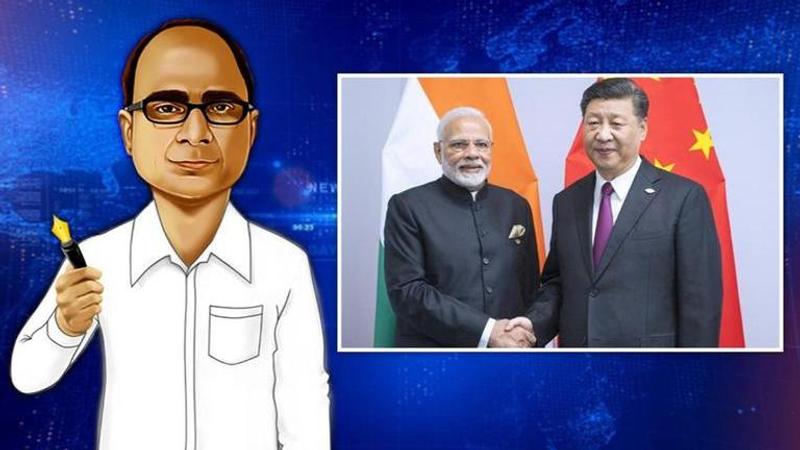Published 07:51 IST, April 19th 2020
In FDI Move On China, Modi Again Underscores Economic Nationalism
The tweak should be seen as part of a series of maneuvers of PM Modi to use economic nationalism in aide of his larger diplomatic and domestic policy objectives

BY itself Saturday's move of the Modi government to route all Foreign Direct Investment (FDI) from neighbours sharing land border with India through a layer of bureaucracy on Raisina Hill does not change much for China. It can still pick up stakes in Indian corporations on stock exchanges or through the hot money channel of Foreign Portfolio Investments (FPI). At least till the Securities and Exchange Board of India (SEBI) comes up with fresh guidelines.
The tweak, however, should be seen as part of a series of maneuvers of Prime Minister Narendra Modi to use economic nationalism in aide of his larger diplomatic and domestic policy objectives. India had recently raised tariff on Palm Oil imports from Malaysia, after the South East Asian nation played truant and sought to attack the Article-370 move in an open support of Pakistan. The move sure hurt, for Malaysia did a quick about turn and things fell in place. Apart from a similar decision on Turkey, New Delhi also took an unusually tough position on Istanbul's forays into Syria.
Speaking at the Motera stadium in Ahmedabad on February 24, the United States President Donald Trump had called Modi a tough negotiator. You can imagine the scale of the compliment coming as it did from the man who wrote 'Art Of The Deal.' Earlier also Trump had taken a swipe at Modi's trade policies by calling India a tariff king. All that still did not stop the Modi government from holding up even a limited trade deal till it ticked all the boxes on India's concerns. The American push on e-commerce that could be detrimental to small retailers in India has come to a naught. It is a measure of clarity that Amazon chief Jeff Bezos was declined an appointment by the Prime Minister and his top team, including Finance and Commerce Ministers, despite the impending Trump visit.
In November 2019, India had decided to pull out of the Regional Comprehensive Economic Partnership (RCEP) after more than a decade's negotiations, again taking a strong view of the unhelpful provisions that almost gave a backdoor Free Trade Area (FTA) to China. The fact that this came in the immediate aftermath of the Mahabalipuram Summit between Modi and Xi Jinping, it was the strongest message yet that Modi could look China in the eye.
The Wuhan spirit and Chennai connect notwithstanding, the dragon has not tangoed well with India on trade. Using its economic muscle and manufacturing prowess as a natural moat against a level playing field, China has made sure that all attempts to balance the import bill have come to a naught. In the summer of 2018, I met an Indian businessman outside the Wanda Realm hotel - where Modi and Xi were summiting - complaining the Chinese stonewalled imports of Indian rice using non-tariff, quasi-judicial measures. India has had to respond in kind. I have personally witnessed the frustrations of Indian side at the games the Chinese mandarins have played in denying greater imports of Indian pharma and IT services for example. In bilateral and multilaterals from Beijing to Ahmedabad, from Wuhan to Chennai, from Astana to Bishkek, from New Delhi to New York, it has been a struggle to get concessions that can be truly called a move forward on India-China trade.
The collapse of the markets around the world provides a nation with deep pockets like China to do some bottom fishing and acquire strategic stakes. The chief spreader of COVID pandemic, might end up as the biggest economic beneficiary of the crisis. For that very reason perhaps, India is not alone in building these protective walls in these uncertain COVID times. On March 17, Spain decided that all FDI would need prior government approval. Australia took an almost similar decision on March 27. And Germany and Italy followed on April 8 by bringing in legislative and executive amendments aimed at making their respective FDI rules more stringent. By joining these nations, the Modi government has added to the global alarm at possible predatory moves taking advantage of the situation. I wrote in my last piece on how as a Black Swan event, one of the many impacts of COVID would be to fasten the end of globalism as a philosophy. Well, we are already watching it pan out.
Updated 11:22 IST, April 19th 2020



